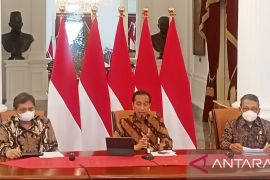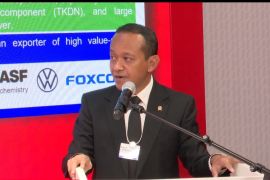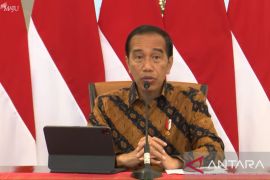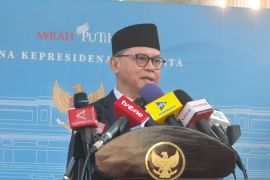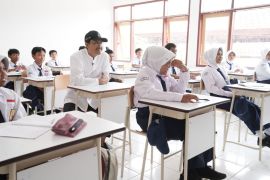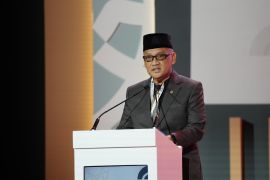"We are studying whether companies now developing their smelters faced capital constraints to complete them. If they fall short of money to finance the development of their smelters, the government can allow them to export their bauxite partially to obtain money to complete the developments," Said Didu, chairman of the National Team for the Acceleration of Smelter Development of the Ministry of Energy and Mineral Resources (ESDM), said here on Monday.
The ESDM Minister issued Regulation Number 1/2014 on the ban of bauxite ore exports. According to the regulation, companies were banned from exporting bauxite ores from January 12, 2014, and are required to build smelters to process the mineral resource at home.
Didu stated that several mining firms had begun developing their smelters and then stopped as they lacked funds since they stopped exporting bauxite.
"We should find a legal breakthrough to accelerate the development of the smelters. We should find ways to allow them to export bauxite so they can increase their capital, otherwise they can go bankrupt," he added.
However, the government will not immediately allow all holders of mining licenses to export bauxite, he pointed out.
"The policy will only be given to companies that are serious about building smelters but have run out of capital," Didu noted.
Before the export permits are given, the government will carry out auditing to evaluate which companies are serious about developing their smelters.
Their seriousness can be identified from the funds they already spent in the construction of their smelters. If it is found that they already financed 30 percent of the project from their internal funds, it would indicate that they are, indeed, serious about the venture.
"Usually, companies use 30 percent of their internal funds to build smelters, while the remaining 70 percent come from banks. If their internal funds did not finance 30 percent of the project, it would mean they are not qualified companies," Didu remarked.
He further noted that the plan to partially relax the bauxite export ban was still under deliberations. It will later be regulated in the form of a government regulation or an ESDM ministers regulation.
Furthermore, ESDM Director General for Minerals and Coal R. Sukhyar said early this month that the government will ensure that the domestic copper smelter is able to accommodate the entire copper concentrate production of the country so there will be no need to export it.
By 2017, the capacity of the domestic smelter will reach three million tons of copper concentrate per year, the director general affirmed.
"This capacity improvement will be accomplished with the development of PT Smelting in Gresik in East Java," he added.
The smelting facility owned by PT Freeport Indonesia and Mitsubishi has an installed capacity of one million tons of concentrate per year. PT Freeport is planning to increase the capacity of the smelting facility by up to two million tons of concentrate per year by 2017.
According to Sukhyar, copper concentrate production in 2017 is estimated to reach 2.7 million tons per year, of which 2.2 million tons will be produced by Freeport and 500 thousand tons by PT Newmont Nusa Tenggara.
It has also been projected that production will reach 3.4 to 3.5 million tons of concentrate per year by 2022, with 2.8 million tons coming from Freeport, 300 thousand tons from Newmont, 100 thousand tons from PT Gorontalo Mining, and 200 thousand tons from PT Kalimantan Surya Kencana.
In addition, the government is planning to add to the capacity of its smelter by 500 to 700 thousand tons of concentrate per year by 2025.
"The additional capacity has to be built by 2022 so the extra capacity smelter can become operational by 2025," he explained.
The government has been inviting investors to build the smelter, while it will facilitate the supply of concentrates, Sukhyar added.
The Indonesian government and copper and gold miner PT Freeport Indonesia have agreed to build a smelter in Timika industrial estate in Papua province.
The construction of a smelter in Papua is intended to handle the mining output of PT Freeport Indonesia, according to ESDM Minister Sudirman Said.
"Constructing a smelter in Gresik, East Java, is an extension of the existing one, while the one in Papua is intended to refine the mining production of PT Freeport," the minister remarked recently.
He noted that in future, Indonesia will need a refining capacity of at least four million tons to process raw materials such as gold, silver and coal.
(A014/INE)
EDITED BY INE .
Editor: Suryanto
Copyright © ANTARA 2015
